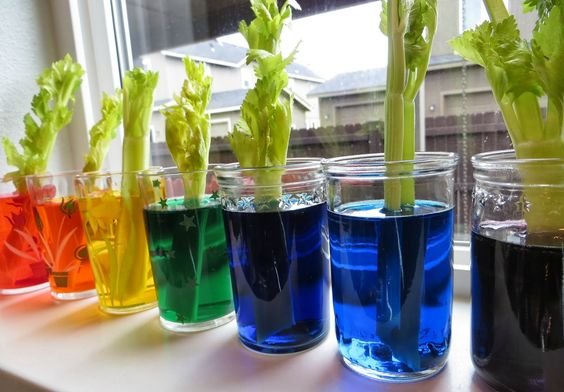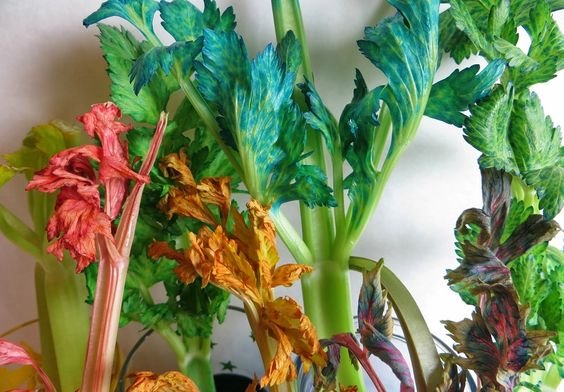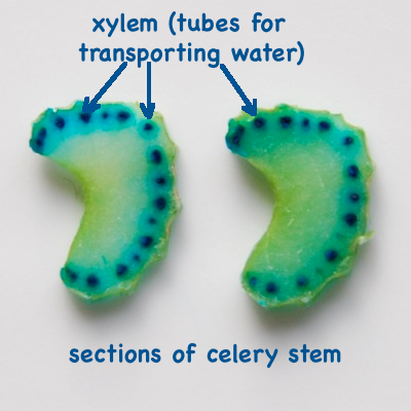Making Science Fun: Learn How Water Is Transported In Plants
Kids always learn best through fun, gone are the days that we force our students to stare at textbooks (which is what they usually do, stare, not read). This activity is best suited for intermediary phase students but can be appreciated by senior phase pupils and even younger tots too! And it's such an affordable activity too, so you can work within a budget and the results are usually quite satisfactory.

Aim Of The Experiment
The aim of the experiment is to hep children understand how plants grow, with the focus being on how they transport food and water from the ground to the rest of the plant.
What You Will Need
- Glasses of water
- Dye or food colouring
- Leaves with large stems and leaves, like celery, cabbage or spinach
- Time - (about 6-8 hours) to see the results
The Experiment
- Place a few drops of dye in each glass of water, make each glass a different color
- Cut your stems and place them in the different colored glasses
- Now you wait. Perhaps it is best to do your experiment at the end of the day, so that by the next morning the colorful water would have spread through the "veins" of the leaves.


The Explanation
This experiment is understood best when used elaborate on an explanation of how the transportation of water in plants work. This is usually done in an intermediate phase or senior phase biology/science lesson.
In essence you would explain that plants, like celery, use little tubes called xylem to transport/move water from the ground to where it needs to be (the leaves) so that it can help the plant grow. This water is then "exhaled" through the stomata, which are little pores found on the leaf. On some leaves you can see the stomata with the naked eye, others you will need a microscope to view.
You could also use this as an example of how blood moves through a humans body.
The small "vessels" in the celery stalks carry the water and color to the leaves, like the way blood travels through your body. - Pink and Green Mama, MaryLea
Easy experiments like this really allow children to learn in a fun and imaginative way and they give a more "hands on" approach to any given lesson. If you are not an educator, then you can do this "trick" at home with your children on rainy days too!
 Team South Africa banner designed by @bearone
Team South Africa banner designed by @bearone
Nice experiment.
Thanks @rynow :) Looking forward to your next "car" post!
I still remember this experiment done by me from my home during my 6th grade school or so. Thanks for helping me recollect those days. It was fun and moreover amazing indeed , science always is fun😉.
Really nice experiment which I have done with the kids using roses (they are only 2 and 4 so the science explanation is a bit simpler), however I do like how celery shows the structures so much better. Thanks for sharing.